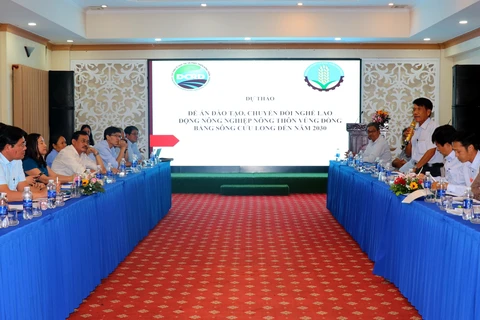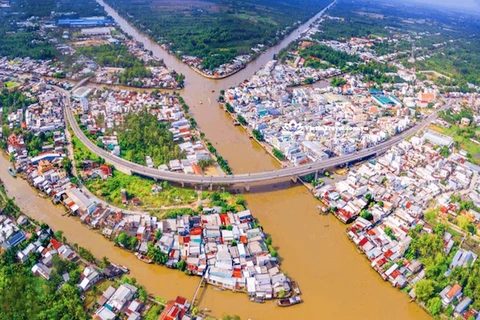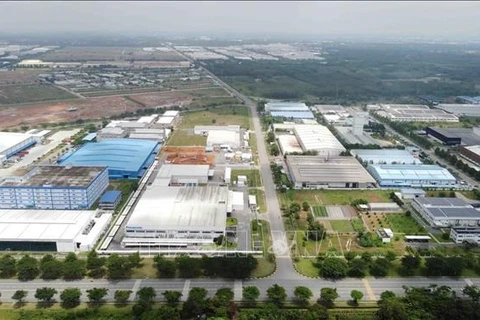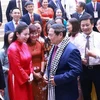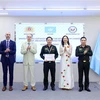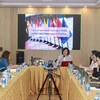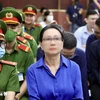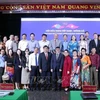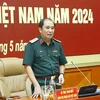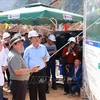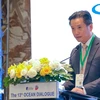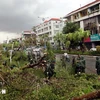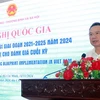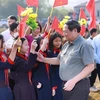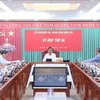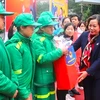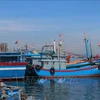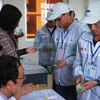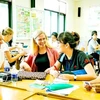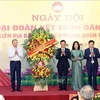 At the second regional consultative forum on the “Triangular Cooperation on Sustainable Development in the Lower Mekong Basin based on the Water-Energy-Food (WEF) Nexus” in Bangkok, Thailand, on August 31. (Photo: nhandan.vn)
At the second regional consultative forum on the “Triangular Cooperation on Sustainable Development in the Lower Mekong Basin based on the Water-Energy-Food (WEF) Nexus” in Bangkok, Thailand, on August 31. (Photo: nhandan.vn) The event also brought together representatives from the United Nations Office for South-South Cooperation (UNOSSC), the Mekong River Commission (MRC), and the Ministry of Science and ICT of the Republic of Korea (RoK), and others from Cambodia, Laos, and Thailand.
Also known as the “RoK- UNOSSC Facility Phase 3” or P-LINK, the project, launched in September 2021, aims to strengthen access to water, food and energy for vulnerable communities living in the Lower Mekong Basin (Cambodia, Laos, Thailand, and Vietnam).
Through integrative and multi-sectoral approaches in the application of technologies for water, energy and food, the livelihoods of the people based on South-South and triangular cooperation (SS & TrC) modalities are expected to be improved at the end of the project.
Following the first consultative forum in Bangkok on June 28, the second reviewed the project’s outcomes in 2022, and looked into action plans set for this year.
UNOSSC Director Dima Al-Khatib told the Vietnam News Agency (VNA)’s correspondents in Bangkok that through the project, UNOSSC wishes to provide communities with scientific and technological solutions, as well as suitable changes to improve their livelihoods, especially through better access to clean water, energy and food.
UNOSSC also hopes that pilot solutions will bring about good results so that they can be rolled out on a larger scale, she added.
Representatives from the Lower Mekong Basin countries discussed the selection of locations to pilot the project, as well as challenges to the work and potential solutions.
The five-year project costs 4 million USD funded by the Korean ministry. UNOSSC plays a leading role in implementing the project, along with other partners, including the MRC Secretariat, and the Mekong Institute, and the Science and Technology Policy Institute of the RoK./.
VNA
